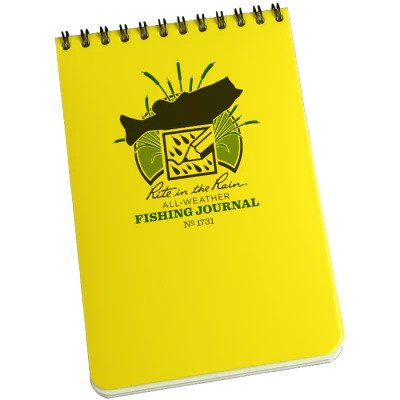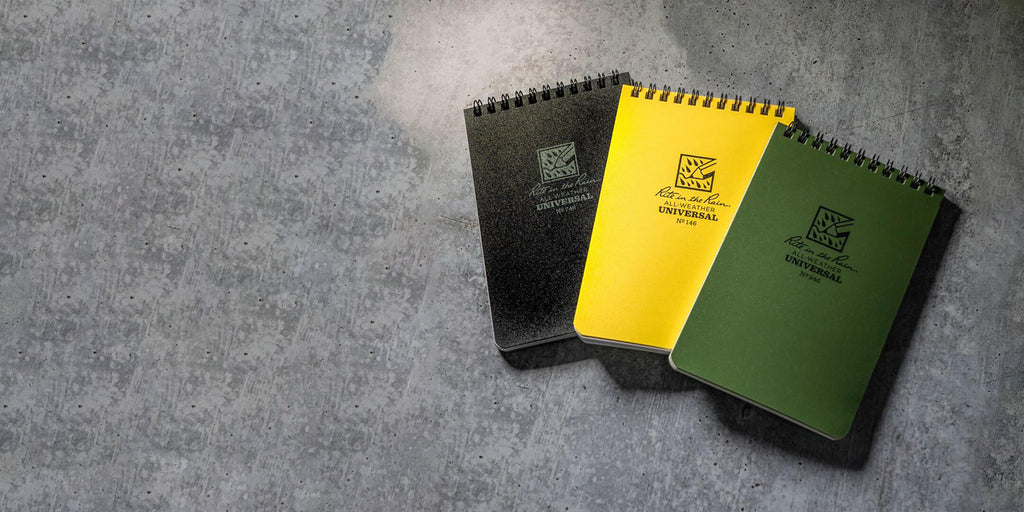Do you have a job that requires you to do research in the great outdoors? Maybe you’re a geologist, student, ornithologist or environmentalist (you name it!). Whatever role you have, make sure you are prepared for a successful research trip, with our top essentials for outdoor research. These are just a few of the main essentials that you don’t want to forget when you’re packing up your bag:
Waterproof Notebook
When you’re doing outdoor research it’s essential that you can write your observations down and keep an accurate record of your work, whatever the weather. That’s why a waterproof notebook is an essential item for outdoor research. Allowing you to write in all weather conditions, Rite In The Rain Waterproof Notebooks are also resistant to the likes of mud, rain and oil, meaning your notes won’t be ruined when you’re in challenging outdoor environments. You can even write underwater if you need to! Designed with field work in mind, our Waterproof Field Book is a particularly great choice for outdoor research, and for any budding geologists, be sure to pick up our Geological Bound Book that features useful geological references, organised pages and a ruler. Not to mention, it’s also fully water-resistant of course!
Waterproof Pen
Don’t forget to bring your waterproof pen or pencil to write with!. Just like our waterproof paper, our waterproof stationery is designed for use in all weathers and to complement the properties of our waterproof notebooks. Durable and temperature-resistant, our waterproof pens allow you to write clearly, without smudging, in any outdoor environment. They also have a flexible tip which grips the pencil lead to prevent it from twisting, wobbling or falling out. All this helps to make outdoor research a breeze!
Backpack
Keep all your essentials for outdoor research in a lightweight backpack that is practical, durable and waterproof. You also want to make sure that it’s a reasonable size for carrying everything that you need. The Red Original Waterproof Backpack is a great option for outdoor research. 30L in capacity, it has plenty of space to carry everything you need, and is made using 100% recycled plastic waterproof fabric to keep all your belongings dry throughout the day.
Flask, Water Bottle & Snacks
In order to keep your energy up for the duration of your trip, it’s really important that you’re drinking plenty of water and keeping yourself well fed, so make sure to pack plenty of snacks. When the weather is a little colder, it’s also sensible to bring a hot drink in a flask to help warm yourself up. Having a warm brew is also a great reward for all your hard work when you’re out in the field.
Walking Boots
The last thing you want when conducting outdoor research is for your feet to be wet or uncomfortable, particularly when you’re on your feet for extended periods of time. That’s why it’s so important to wear a pair of boots that are supportive, durable and waterproof. The LOWA Gore-Tex Mountain Boots are a great option for outdoor research. Made using Gore-Tex technology, these durable boots are fully waterproof and benefit from a specialist sole that offers enhanced grip in uneven terrain. They’ll keep your feet protected and keep you feeling comfy for the duration of your trip.
Dress For The Weather
The clothes that you need to wear will of course depend on the weather forecast. If it’s the summer, make sure to bring the necessary sun protection including sun cream, sunglasses and hat. Even though it’s hot, it’s a good idea to keep your shoulders and back covered in order to prevent sunstroke. During the winter you’ll need plenty of thermal layers and waterproofs, as well as hats and gloves.
Specialist Equipment
Last but certainly not least, you want to make sure that you’ve got all the necessary equipment you need to collect your data and samples. This will depend on the type of field work you are doing, however, it may include containers for specimens, marker pens, waterproof bags, cameras etc.
Enjoy your outdoor research and make sure to stay safe!



